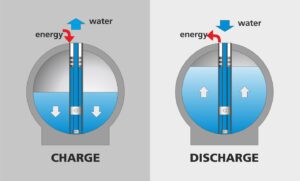Protecting the economy, methane stupidity and under-hydro hydro
In this issue:
Risk managing agriculture under climate change
As an economy based heavily on agriculture it would pay our policymakers well to take on board what is happening in agricultural sectors around the world because of climate change. A report just published by the European Investment Bank concludes that the agricultural sector in Europe loses around €28bn (NZ$54bn) a year from adverse weather events, with this figure likely to increase 66% by 2050. The report points to developing government-supported insurance and risk management solutions as preferable to compensation programmes after an event.
70% of industrial methane emissions avoidable
That’s one of the conclusions of the IEA’s Global Methane Tracker 2025. Current methane pledges by companies and countries cover 80% of global oil and gas production but only 5% of output demonstrably meets a near-zero methane emissions standard. Proper abatement could have seen an additional 100 billion cubic metres of gas in the market in 2024, about the same as Norway’s level of gas exports, an amount that would have vastly improved prices and energy security. Alongside that, 150 billion cubic metres of natural gas is flared each year, with most of this wastage avoidable.
Corporates looking for assurance on sustainability reports
The sustainability report assurance market remains strong and is growing. According to a recently published report by IFAC (International Federation of Accountants) nearly three quarters (73%) of large corporates obtained assurance on sustainability reports in 2023, although most of the assurance covered limited scope, notably emissions. Audit firms held 55% of the market, down a little on the 58% market share in 2022.
Cheap, flow batteries for the home just around the corner
Water-based, flow batteries are likely to be cheaper and safer than lithium-based batteries and the technology has just enjoyed a breakthrough thanks to scientists at Monash University. Flow speeds are the hurdle that has been holding back water-based batteries but the team at Monash has developed a membrane with much faster flow, making it practical for capturing solar energy in real time. The result is units that are effective and practical at the household level at a fraction of the cost of lithium-based storage.
Less than half of young people feel equipped for green jobs
That’s just one of the findings of a Capgemini study of how young people perceive their prospects. While 61% of 16-24 year olds believe carrying green skills will open opportunities, only 44% feel readily equipped.
Smaller, lighter and 100% more efficient cooling
Scientists from Johns Hopkins University, working with a Samsung research team, have developed solid-state thermoelectric refrigeration technology using nano-engineered materials that is twice as efficient as traditional, compressor-based devices at room temperature. On testing in a fully integrated refrigeration system, the efficiency improvement was 70%. The refrigeration units in the test are massively smaller and lighter than traditional units, containing only 0.003 cubic centimetres of the new materials per unit.
Storage under pressure
Germany’s Fraunhofer Institute is working on a new storage technology based on water pressure. It is a form of pumped hydro storage where concrete spheres are placed on the ocean floor around 600m to 800m deep. The spheres are charged when empty. When their valves are opened, water pressure fills the spheres through a turbine, generating electricity. When cheap renewables are available, the sphere is pumped empty again against the water pressure. The concept is pleasingly simple and the technology is claimed to be cost competitive with traditional pumped hydro systems.
Carbon removing storage
It may sound too good to be true but scientists at Surrey University have developed a battery storage technology that also removes CO2 from the atmosphere. The lithium-CO2 batteries absorb CO2 as they release electricity. The key is the use of a new catalyst, caesium phosphomolybdate (CPM), which allows the battery to store more energy and use less power in charging as well as capture CO2.
Did you know ……
0.04% of global emissions come from inhalers? Thankfully, AstraZeneca has just received approval in the UK for a new propellant that reduces harmful emissions by 99.9%. It is currently in the process of seeking approvals in Europe, China and the US.



